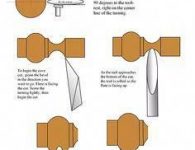

Microsoft is expanding its Dynamics 365 service with new online commerce and retail store management capabilities, among other features.
The Commerce and Connected Store applications will extend the reach of Microsoft’s ERP and CRM suite, and provide a helping hand to retailers selling through multiple channels.
Dynamics 365 also gets new IoT analytics tools, including Product Insights to provide additional services to customers with connected devices, and IoT Intelligence for SCM to help adapt production to changes in the supply chain.
And there are new tools for creating customer service chatbots and monitoring their performance, as well as enhancements to Microsoft’s customer data platform, Customer Insights, to help B2B sales staff identify “buying committees” within customer companies, and to analyze the purchasing process in more depth than the existing tools targeted at B2C sales teams permit.
Commerce tools for bricks and clicks
“CEOs who participate in the retail industry are telling us it’s time to reinvent bricks-and-mortar,” said Lorraine Bardeen, general manager for Dynamics 365 Mixed Reality at Work, at a presentation of the new software last week. “They’re also saying commerce has to be available anywhere, anytime, any platform.” This has prompted the company to introduce two new modules for Dynamics 365: Commerce and Connected Store.
Commerce is an evolution of Dynamics 365 Retail to include e-commerce functions. It allows vendors to create and manage online stores, connecting it with existing retail outlets to provide in-store pick-up and suggest to staff opportunities to upsell to clients in person.
Connected Store, the other new module, is now available in private preview, and uses cameras in stores to monitor stock levels and customer behavior. Because of the additional hardware requirements, it will be a much bigger integration challenge for CIOs.
Microsoft has worked with U.K. retailer Marks & Spencer to develop the module. “Customers are shopping differently: They’re shopping mobile, they’re shopping cross-channel, whether that’s browsing online and collecting in-store, or trying on in-store and going online to purchase it,” said Paul Airey, head of technology for retail at Marks & Spencer. “It’s a critical part of our transformation that we become a digital-first retailer.”
The retailer has the system up and running in a small store near its headquarters in London, where monitoring the systems have enabled it to better adjust staffing levels to match customer numbers. The next step, he said, will be to add connected sensors to refrigerators so that they can alert staff through Microsoft Teams of any problems with the equipment.
Where previously store managers had had to make decisions based on historical data, they can now do so using real-time data from the Dynamics 365 dashboard, he said, for example looking at footfall information to open a new check-out lane before a queue forms, or to keep shelves fully stocked with fast-moving products.
IoT Insights
IoT Intelligence, an addition to the existing Dynamics 365 Supply Chain Management module, offers a new way to collect and analyze data from sensors in manufacturing and logistics facilities. One of the first users is food manufacturer Majans, which is using it to increase operational efficiency and prevent production problems, said Dina Apostolou, Microsoft’s director of Dynamics product marketing.
A new module, Product Insights, offers businesses analytics tools for dissecting telemetry from internet-connected products they have sold, and compare it with other data held about customers in Dynamics 365, she said. It uses machine learning to flag unusual situations and help determine possible causes.
One of the first users of the module is Ecolab, a manufacturer of industrial dishwashing equipment. Apostolou said the company used the software to trace a drop in water consumption in some of its machines back to a particular firmware version, and to recommend water-saving configuration changes to other customers as a result.
Smarter virtual agents
Earlier this year, Microsoft revealed its plans for the Dynamics 365 Virtual Agent for Customer Service. The tools to build these chat bots will now be released on Dec. 1, including capabilities not previously announced. The drag and drop tool is built on Azure’s AI bot service, and will allow organizations to test out their bots internally before making them live on their external websites.
Apostolou said Microsoft will also offer dashboards to monitor the effect of bot interactions on overall customer satisfaction measured by Dynamics 365, and to evaluate time saved by having bots, rather than employees, respond to simple queries.
read more at https://www.cio.com.au/tax/news/ by Peter Sayer
Cio









